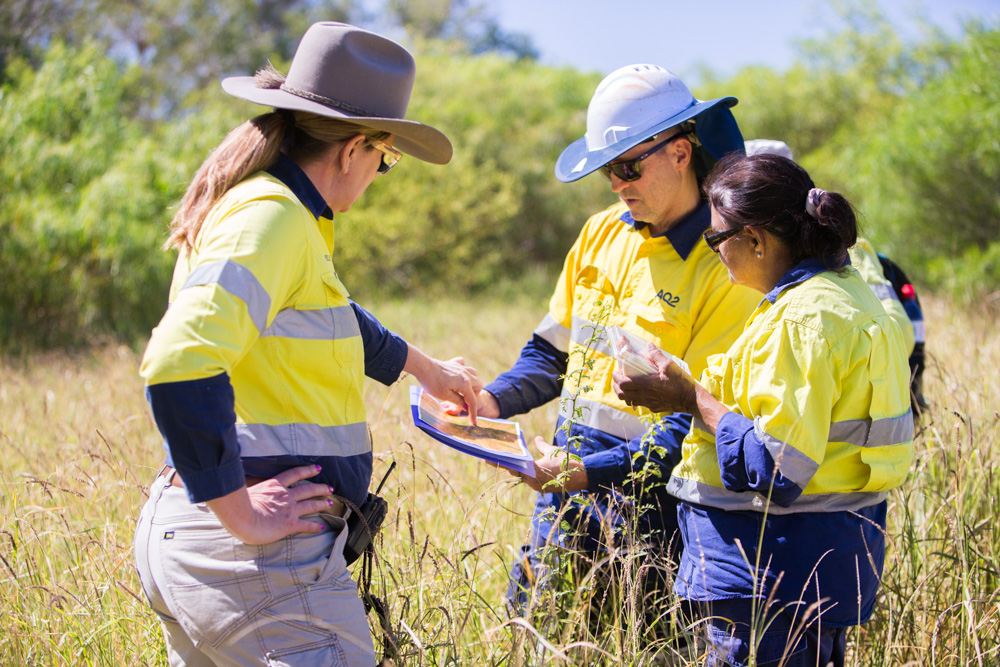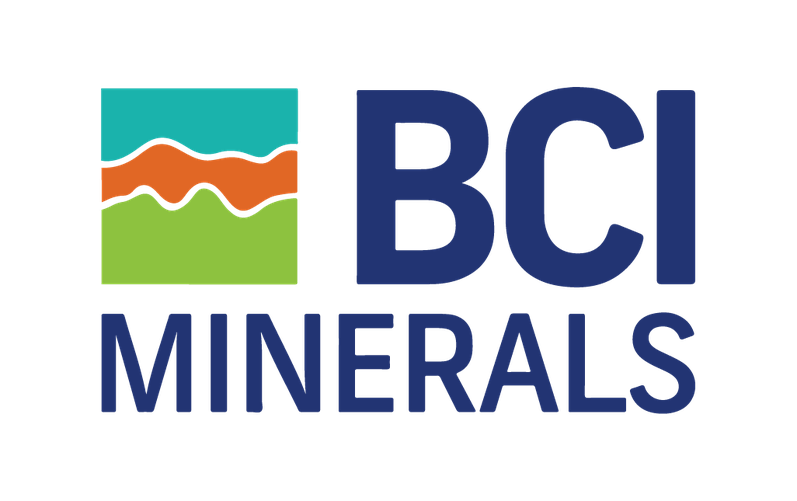Environmental Protection for BCI means maintaining a healthy natural environment by conserving natural resources, minimising waste, minimising emissions and maintaining ecological health and wellbeing, now and into the future.
BCI recognises the importance of maintaining the biological diversity and ecological integrity of the environments within which we operate or plan to operate. This means that while BCI seeks to conduct activities that involve the extraction of resources, we do so without interrupting the ecological balance of the ecosystems we operate within.
Our systematic approach to environmental management is a key driver to maintaining a sustainable impact to the environment, ongoing compliance and continued improvement in our environmental performance. We firmly believe that it is the responsibility of all staff and contractors to act as custodians of the environment and this is reinforced through site-specific inductions and training programs.
In addition, BCI is committed to identifying and harnessing renewable resource solutions for its’ projects and operations and implementing actions to mitigate climate change.
Click here to read our Environment Policy.
Marine Research Offsets
BCI is collaborating with the Western Australian Marine Science Institution (WAMSI) to fund marine and intertidal research. A Summary Offset Plan outlines the process for planning and implementing the Mardie Project Marine and Intertidal Research Offsets Program, as required under Condition 14-5 of Ministerial Statement No. 1175. Two key documents will provide the framework:
- Summary Offset Plan –overview of the process for planning and implementing the Mardie Project Marine and Intertidal Research Offsets Program including: governance, project development strategy, project design, timeframe, completion criteria and communication.
- Science Program – detailed description of the Mardie Project Marine and Intertidal Research Offsets Program including: project objectives, participating research institutions and scientists, methodology, milestones, deliverables, schedule and budgets.
The Summary Offset Plan was written by WAMSI on advice of DPIRD and DBCA representatives from the Steering Committee.
The Summary Offset Plan:
- provides direction on how the Science Program will be designed and implemented to fill identified knowledge gaps through an open and transparent process.
- describes the processes and timing for the development and implementation of the Science Program and includes a draft Science Program.
- provides an overview of the governance and management structures that have been put in place to design an independent and transparent Science Program.
- outlines the role of the Steering Committee of key WA agencies (and Commonwealth if requested), which will provide the overarching project direction to ensure that the research is fit-for-purpose and fulfils the commitments outlined in Condition 14 of MS1175.
- will be delivered through WAMSI and will involve key science institutions invited to participate through a transparent process.
Click here to see the Summary Offset Plan published on WAMSI’s website.
Mardie Project Public Environmental Review
BCI Minerals Limited, through its wholly owned subsidiary Mardie Minerals Pty Ltd, is proposing to develop a salt and sulphate of potash (SOP) operation, and associated export facility approximately 80 km southwest of Karratha, WA.
Mardie Minerals has prepared Environmental Review Documents in respect of the original Definitive Feasibility (‘DFS’) Study for the Mardie Project, and in respect of the updated Optimised Feasibility Study (‘OFS’) for the Mardie Project, in accordance with EPA procedures. The Environmental Review Documents describe the proposal, the likely environmental impacts and the proposed management measures. They can be downloaded using the links below.
Click here to view the Environmental Review Document - Mardie DSF Proposal
Click here to view the Environmental Review Document - Mardie OFS Proposal
The EPA has issued its assessment report on the Optimised Mardie Project. Click here to view the EPA Report on the Optimised Mardie Project.

Commonwealth Annual Compliance Report
In compliance with Condition 37 of the Federal EPBC approval (2018/8236) BCI has published the Annual Compliance Report on this website.
Annual Compliance Report
- Reporting period: 14 January 2025 to 8 September 2025 and 9 September 2024 to 8 September 2025
- Reporting period: 22 February 2024 to 13 January 2025
- Reporting period: 22 February 2023 and 21 February 2024
- Reporting period: 11 February 2022 to 21 February 2023
Marine Fauna Sightings Register
- Reporting period: 23 February 2025 to 8 September 2025
- Reporting period: 22 February 2024 to 13 January 2025
- Reporting period: 22 February 2023 to 21 February 2024
Independent Audit Report
Click here to view the 2022 Independent Audit Report
WA Annual Compliance Report
Climate Change Risk Assessment:
Climate change is a key consideration for the Mardie Project and during the year an independent expert was engaged to conduct a Climate Change Risk Assessment (CCRA). This involved a high-level evaluation of natural hazards which are likely to affect the Project under baseline and climate change scenario timeframes of 2030 and 2050 and used projections from the Intergovernmental Panel on Climate Change (IPCC).
Several physical risks were noted as increasing under various climate change scenarios with the highest risk rated hazards being water stress, wildfire and floods. Some of the key actions recommended by the assessment and being addressed by BCI relate to:
-
Infrastructure designs being cognisant of the potential impacts from increasing cyclone intensity
-
Project design already considers flooding and maintenance of water flows, however BCI is investigating further options to mitigate the potential for flood impacts
-
Bushfire risk assessment to determine vulnerabilities and appropriate bushfire risk management strategies
-
Water availability is addressed through the construction of a desalination plant
The design basis for the jetty is to withstand a 1 in 500-year event and considers increased cyclonic activity. An additional Project impact was considered whereby winds create wave sets within the ponds. To accommodate this, pond walls are designed with a margin protecting against internal storm surges with levees spaced far enough apart to reduce wave fetch and size within the ponds.
The risk of flood is already high under baseline scenarios, and the Project design accommodates extreme weather events. Extreme precipitation events are not projected to increase significantly in terms of volume of water under the climate change scenarios. Baseline one-day maximum rainfall is currently 364mm, with projected increase up to a maximum of 384mm under the 2050 worst case scenario. Accordingly, BCI has already undertaken numerous hydrology studies including hinterland surface water flow modelling, which have informed the design. The greatest hazard from flood risk is the risk of floodwater entering the ponds or crystallisers. Project location has been selected to minimise surface water flows from land to sea and the design includes an elevated access road which acts as a diversion bund to direct water flow through drainage channels to push the water away from ponds and roads.
Other existing freshwater flood mitigation factors include embankments on the upstream side of ponds aligned with the road network to help protect the ponds from freshwater flooding from the Fortescue River as well as the potential to siphon or pump away freshwater which is expected to remain on top of the brine.
Notwithstanding these measures, flooding remains a challenge that will require ongoing monitoring and review of pond wall design. Future mitigations that could be implemented if flood risk increases over time include increasing embankment heights, and improving drainage to the upstream side of the embankment by increasing depth of channels in front of pond walls. This would divert water more efficiently to the south and north of the site and through flood channels.
Documents
Annual Migratory Shorebird Monitoring Survey Reports
Baseline Feral Monitoring Survey Report
Benthic Communities and Habitat Monitoring and Management Plan (BCHMMP)
Construction Environmental Management Plan
Cultural Heritage Management Plan
Dredge Management Plan
Groundwater Monitoring and Management Plan
Illumination Plan
Impact Reconciliation Plan
Long-Term Migratory Shorebird Monitoring Program
Marine Environmental Quality Monitoring and Management Plan (MEQMMP)
Marine Pest Management Procedure
Marine Turtle Monitoring Program
Mesquite Management Plan
Migratory Shorebird Monitoring and Management Plan
Minuria tridens Research Strategy
Underwater Noise Management Procedure
Public comment on Preliminary Documentation Offshore Disposal of Dredge Spoil
Draft Preliminary Documentation
Final Preliminary Documentation
Supporting Attachments
- Att1_DMPA4_Benthic_Communities_Habitat_Report_2024.pdf
- Att2_Dredge_and_Spoil_Disposal_Management_Plan_Rev_5.pdf
- Att2_Dredge_and_Spoil_Disposal_Management_Plan_Rev_5.pdf
- Att3_DMPA4_Disposal_Plume_Modelling_2024.pdf
- Att4_Maintenance_Dredging_Estimate_2020.pdf
- Att5_Stakeholder_Consultation_Register.pdf
- Att6_BCI_Environment_Policy_2022.pdf
- Att7_Mardie_Project_Environmental_and_Social_Management_Plan_2022.pdf
- Att8_Protected_Matters_Search_Tool_Report_DMPA4_241206.pdf
- Att9_Marine_Fauna_Review_2020.pdf
- Att10_Marine_Turtle_Monitoring_Program_2023.pdf
- Att11_Marine_Turtle_Survey_Report_2024.pdf
- Att12_Marine_Turtle_Survey_Report_2025.pdf
- Att13_Bluespotted_Emperor_Study_Summary_2025.pdf
- Att14_Baseline_Marine_Sediment_Assessment_2019.pdf
- Att15_Marine_Sediment_Quality_Assessment_2023.pdf
- Att16_Native_Title_Determination_Area_WCD2018-006_S2_Maps.pdf
- Att17_Underwater_Noise_Risk_Assessment_2025.pdf
- Att18_Dredge_Plume_Characteristics_2025.pdf
- Att19_DMPA1_Disposal_Plume_Modelling_2024.pdf
- Att20_DMPA4_Bathymetric_Survey_2024.pdf
- Att21_Stakeholder_Engagement_Management_Plan_2025.pdf
- Att22_Update_to_estimate_of_maintenance_dredging_volumes.pdf
- Att23_Onshore_disposal_risk_assessment.pdf
- Att_24_Comparision_of_Risk_Assessments.pdf
- Att25_Referral_and_correspondence_with_DCCEEWa.pdf
